Drug production booming in UK's empty high streets
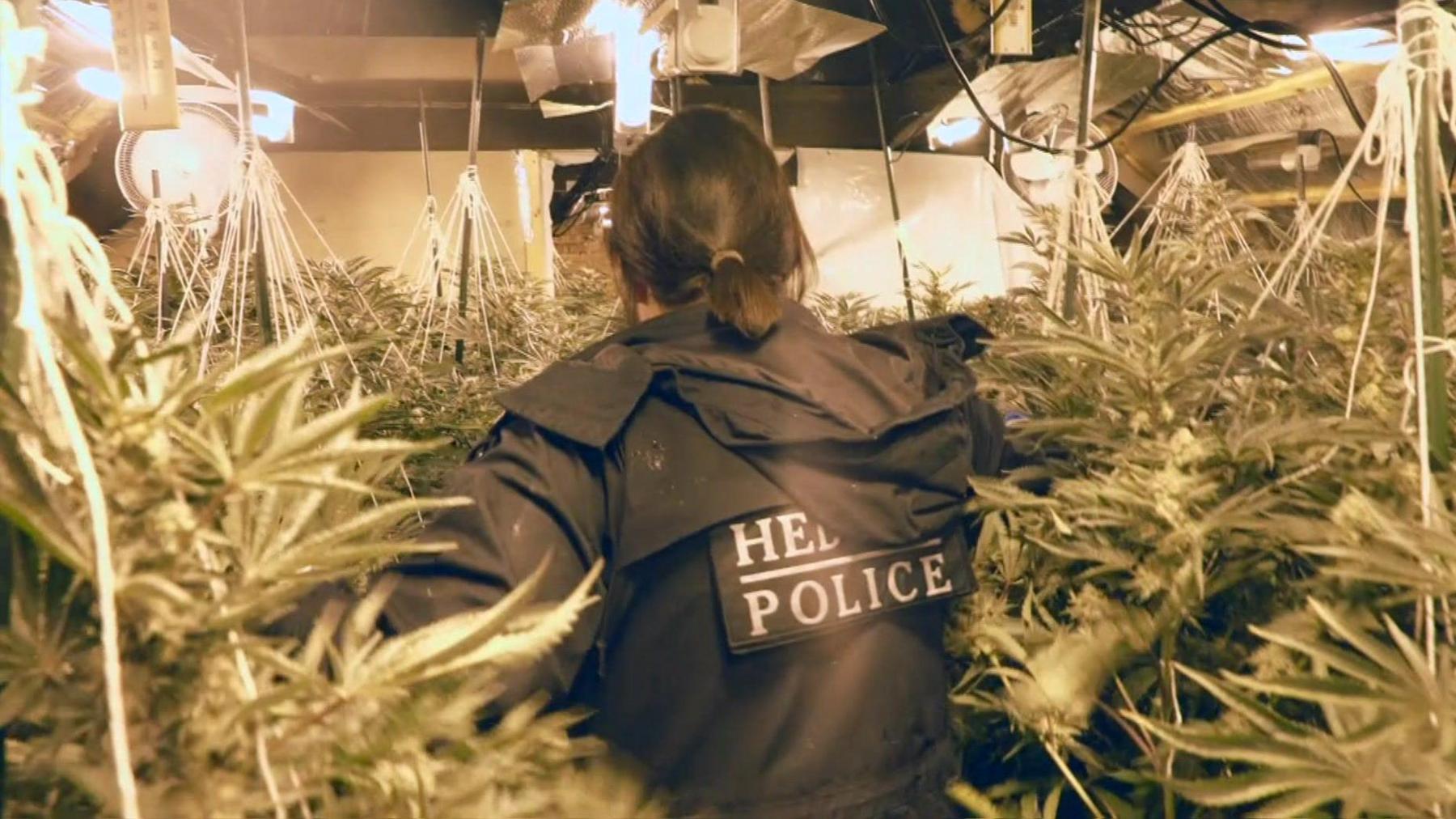
Cannabis farms have been cropping up in the most unlikely of places
- Published
Organised-crime groups have been targeting empty shops and pubs in town centres to grow cannabis on an industrial scale, say police bosses.
Over the past year, raids have been carried out in dozens of properties, from an old toy shop in Ayr, Scotland, to a former bank in Welshpool, Powys.
Vacant restaurants, cafes, nightclubs, bingo halls and office buildings have all been used to grow the drug, according to the National Police Chiefs, external' Council, external.
In Newport, south Wales, criminals used several floors of a former department store on the main shopping street to grow more than 3,000 cannabis plants.
Quarter of mental health cases linked to cannabis
- Published2 July 2024
Cannabis decriminalisation debate could be delayed
- Published19 June 2024
£250m drug bust warning to criminals, say police
- Published8 April 2024
The street value of the cannabis grown in just that one former store was an estimated £2m.
Estate agents, electricians and tradespeople have been warned they face prosecution if they help gangs convert the buildings to cannabis farms.
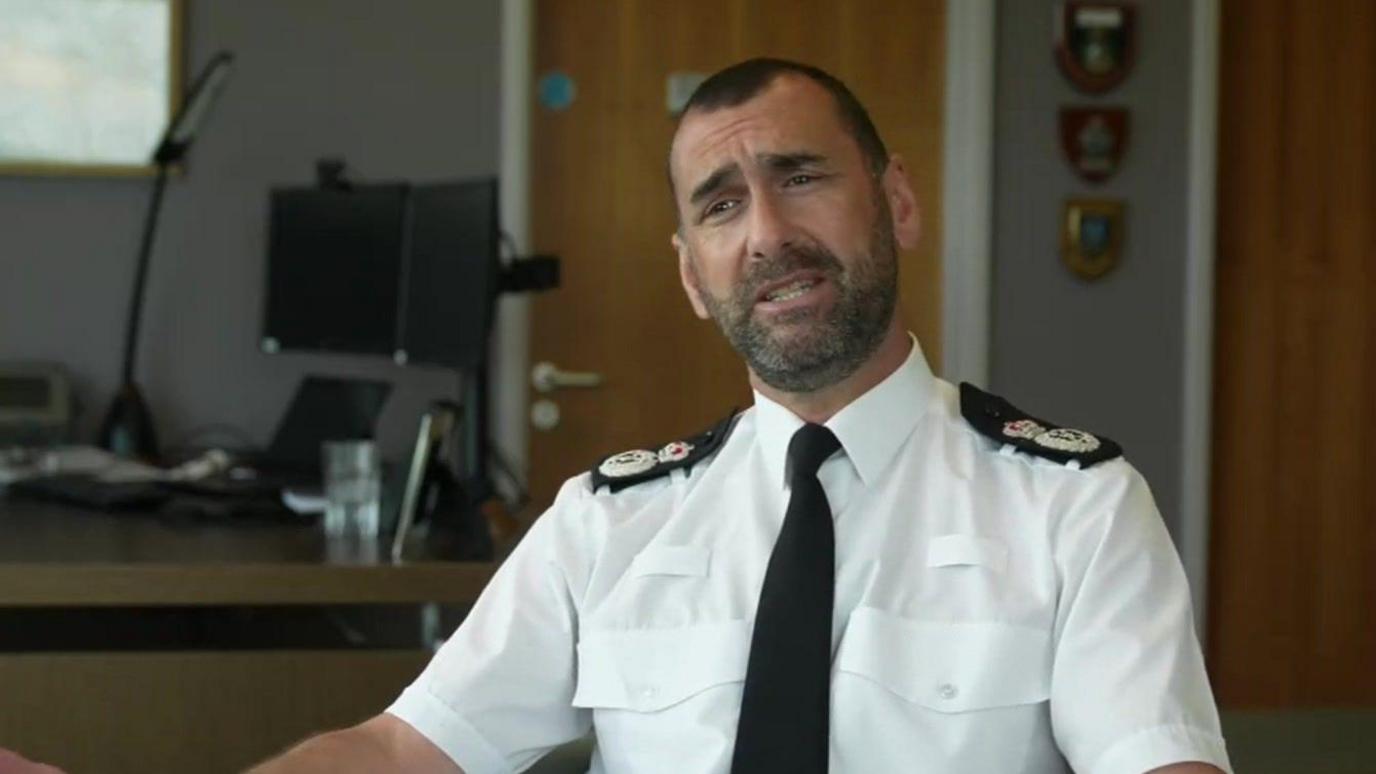
Chief Constable Richard Lewis said the lack of footfall is allowing criminal gangs to conceal their activities
Chief Constable Richard Lewis, the National Police Chiefs' Council’s national lead on drugs, said the decline of many high streets in recent years had created an opportunity for criminals.
"Commercial properties are attractive to organised-crime groups for a whole host of reasons," he explained.
"Large-scale shops have closed down and therefore the footprint to produce cannabis on a larger scale becomes available."
Mr Lewis said the lack of footfall during the evening meant the cannabis farms could go undetected.
"You don't see large numbers of people in the evening any more... neighbours in residential properties would notice things more readily," he said.
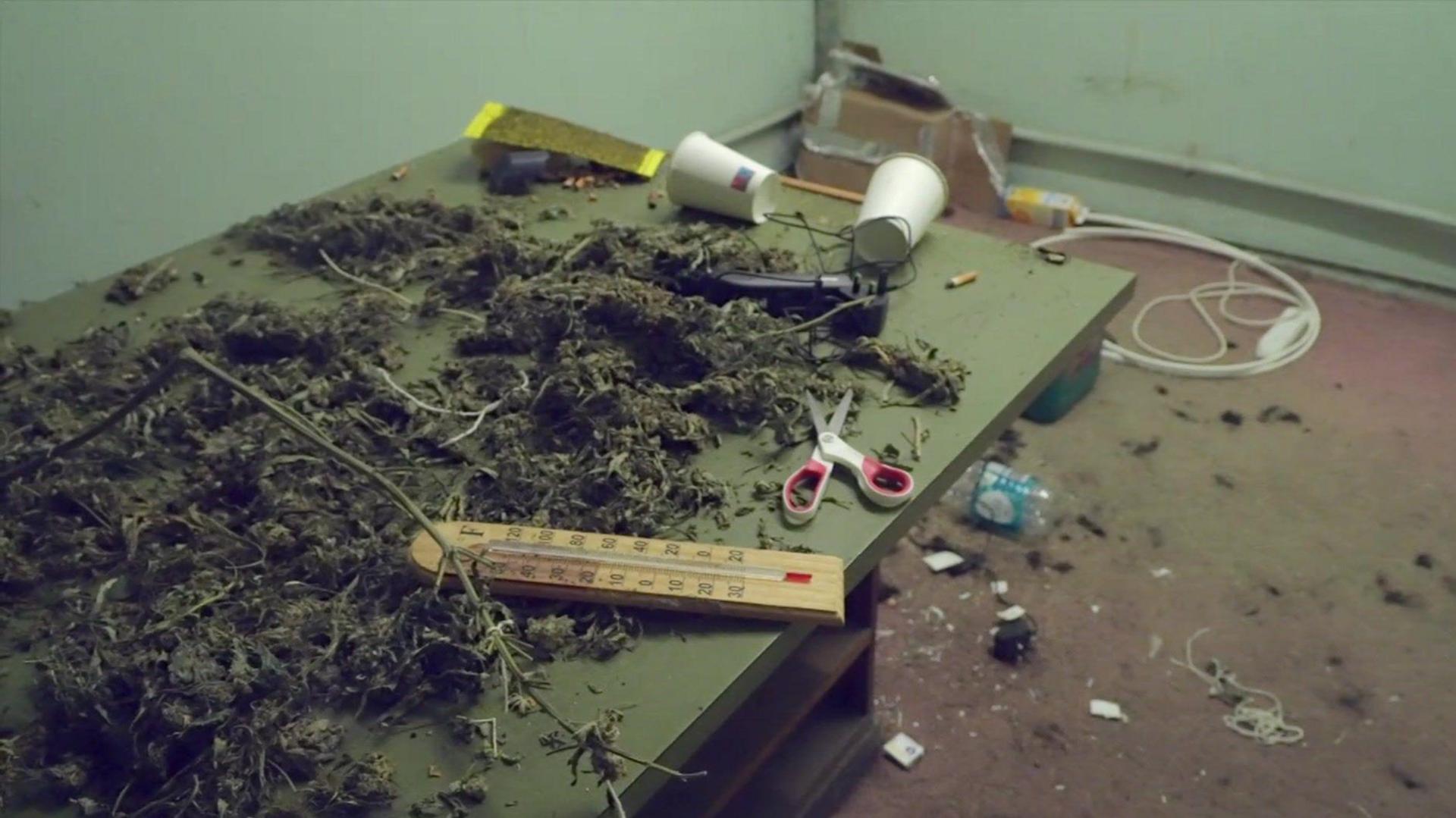
Last year there were almost 1,000 arrests in operations targeting cannabis farms
Last year there was an intensification of police operations to target cannabis farms, with the issue of 1,000 warrants and nearly 1,000 arrests.
Gwent Police has successfully raided several cannabis farms in Newport city centre, the largest of which was the former Wildings department store which closed in 2019.
"It was done over several floors over many levels, and clearly would have taken some time to set up," said Sgt Dan Wise.
He said he had witnessed a transformation in recent years, as gangs targeted empty retail sites in the city which had one of the UK’s highest vacancy rates in the wake of the Covid pandemic.
Last year, analysis from the Welsh Retail Consortium showed that more than one in six shops in Wales is empty.
"Let's be brutally honest, we're talking organised crime groups here and the ability to operate on a much bigger scale and level," added Sgt Wise.
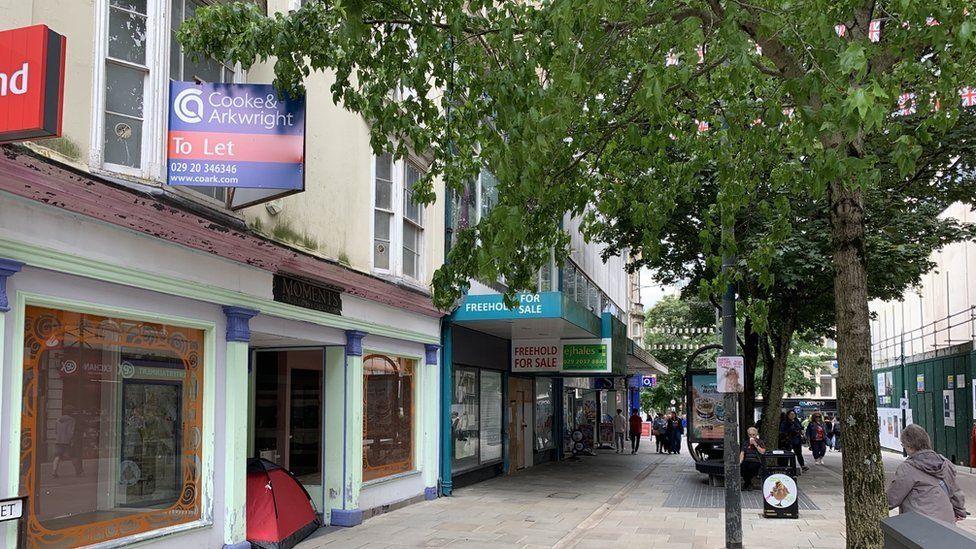
Just over one in six shops in Wales is empty, analysis from the Welsh Retail Consortium shows
Earlier this year, the police worked with Newport City Council to set up a database of buildings which might be vulnerable to use by gangs.
According to the National Police Chiefs’ Council, forces are being proactive in shutting down the cannabis farms and that does not just mean going after those who grow cannabis.
"We've also prosecuted landlords of these places who at best may be turning a blind eye to what's happening," said Mr Lewis.
"We've seen prosecutions of estate agents, electricians and people who have facilitated this trade.
"Of course, most of our tradespeople in the UK do a great job but there are those small minority people who do undertake these types of activities - and we do prosecute them."
Drug raid on empty high street building
Police operations have now found links between large-scale cannabis production and other offences, such as human trafficking and violent crime.
Mr Lewis has urged the public to pass on intelligence to the police if they believe a property is being used to grow drugs.
Some of the tell-tale signs are windows being taped-up and bright lights shining in the early hours of the morning.
They may also have tents outside, he added: “The properties are too hot in order for people to be there throughout the night."
Related topics
- Published19 April 2024

- Published8 June 2024
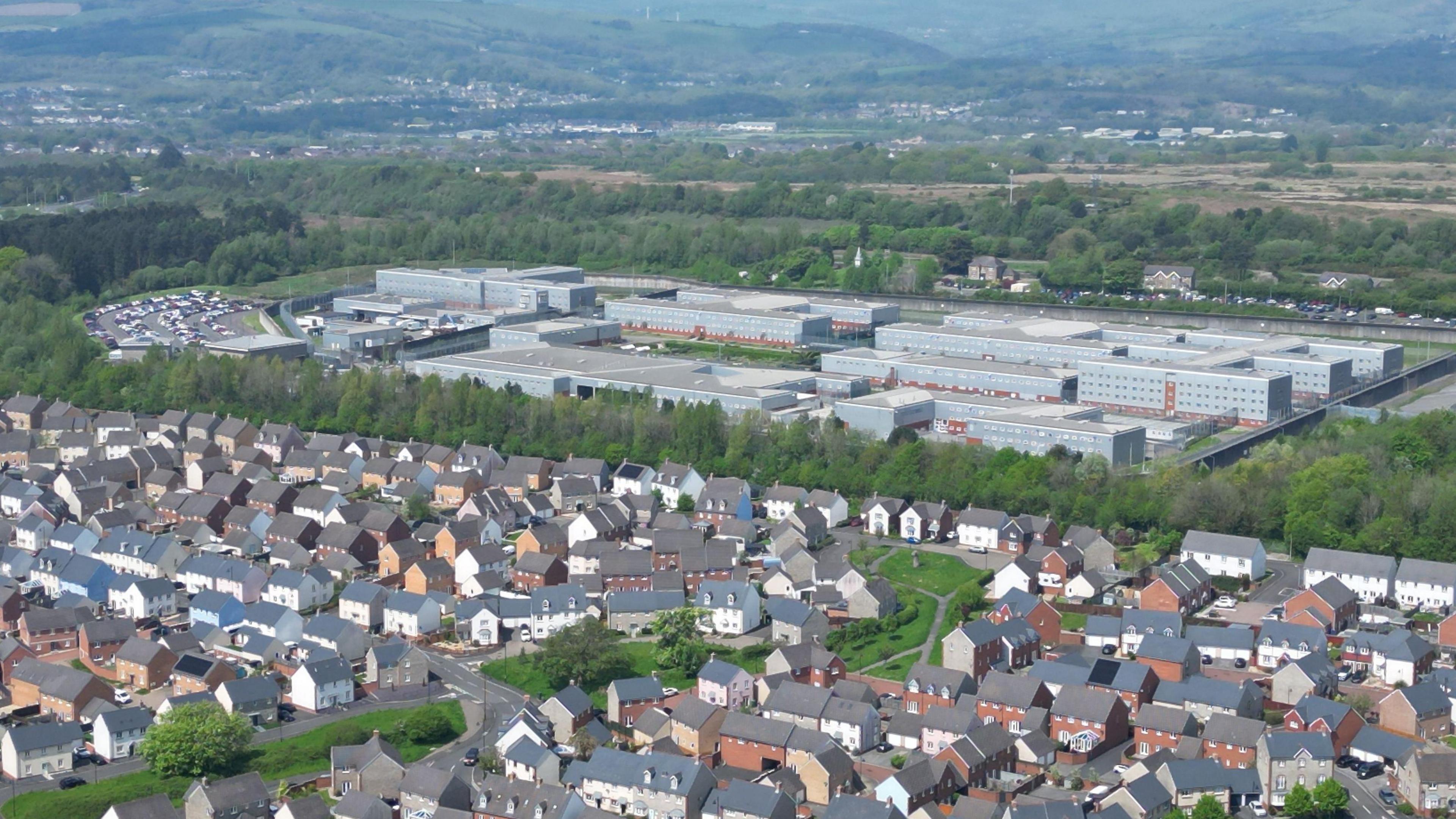
- Published7 June 2024
